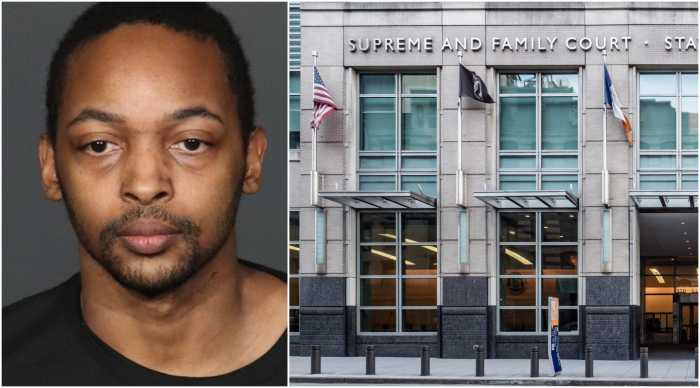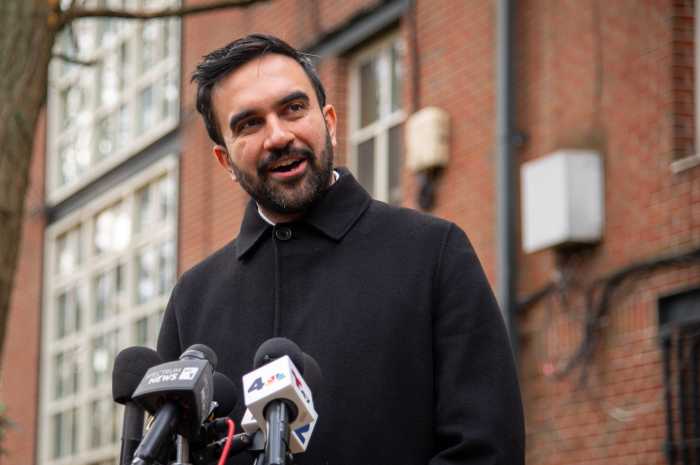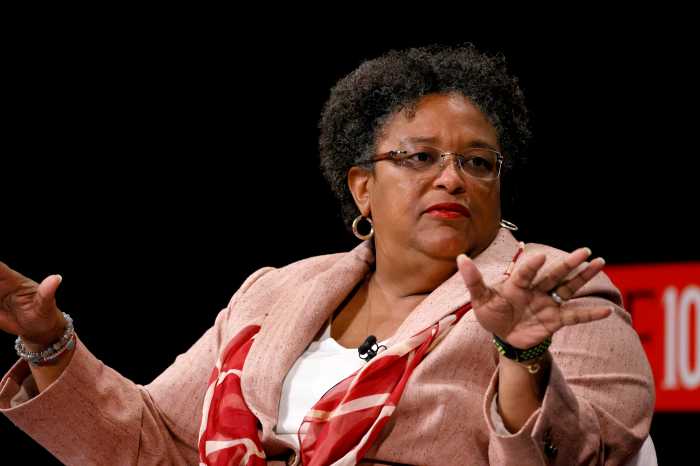Nazi libel hurled at group Hitler targeted
When Taylor Garrett’s claim that he had been attacked a second time because he was a gay conservative was met with great skepticism on gay blogs, other right wingers came to the aid of the reality TV show performer.
Among his defenders was Bryan Fischer, a senior staffer at the right-wing American Family Association who wrote that “a member of the Gaystapo who resents [Garrett’s] friendship with conservative pundit Ann Coulter” had made the attack.
Fischer has called gays Nazis before, and he has asserted that the actual Nazis were homosexuals. Other conservatives have made these charges, as well. Writing in an Anglican newspaper in October, Alan Craig, the leader of the Christian Peoples Alliance, a political party in the United Kingdom, charged that gays in England were behaving like Nazis.
In 1995, Scott Lively, a Massachusetts minister, published “The Pink Swastika: Homosexuality in the Nazi Party,” a book that claimed the Nazis were gay. That is a decades-old libel and was first used by the Nazis’ opponents in the ‘30s and ‘40s.
In 1939, a British white paper on the Nazi treatment of some German nationals quoted a consul general in the British diplomatic corps who blamed homosexuality for Nazism.
“The explanation of this outbreak of sadistic cruelty may be the sexual perversion, and particularly the homosexuality that is very prevalent in Germany,” an R.T. Smallbones said in that report. “It seems to me that a mass sexual perversity may offer an explanation for this otherwise inexplicable outbreak.”
A 1949 article that was published in Newsday attributed the rise of Nazism to “widespread vice” and homosexuality. The article asserted that Adolf Hitler was a male prostitute from 1907 to 1914 in Vienna and that when the Nazis came to power two million German “men were members of homosexual clubs. That number did not include perverted men and women who were not club members.”
Hitler would disagree. The Nazis are known to have killed an estimated 50,000 to 100,000 gay men and lesbians in Germany. A pink triangle, the symbol that Lively was demeaning with the title of his book, was used to identify homosexuals in Nazi concentration camps.
In a 1939 speech before the Reichstag, Germany’s parliament, which was published in translation in the Manchester Guardian, a British newspaper that now publishes as the Guardian, Hitler promised to deal harshly with homosexuals.
“We are neither prudes nor super moralists,” the paper quoted Hitler saying. “Homosexuality and assaults on children will be punished. When five years ago leading Nazis practised such perversions they were shot.”
The Night of the Long Knives, the 1934 lethal purge of the SA, the Nazis’ paramilitary wing, is attributed in part by historians to a desire to rid the party of homosexuals.
In what may be a measure of how serious Hitler was in that 1939 speech, he also predicted the Holocaust, a policy of exterminating Europe’s Jews not yet publicly acknowledged.
“If international financial Jewry should succeed once more to bring the nations of the world to the brink of war the result would not be Bolshevism or the victory of Jewry but the destruction of the Jewish race in Europe,” Hitler said, according to the Guardian.
Another piece of evidence showing that the Nazis were determined in their attacks on homosexuals before the 1939 speech appeared in a newspaper article the year before.
“The Nazi party has been trying desperately to weed out homosexuality which has spread to such a degree that two concentration camps for young boys were opened in recent months,” the Chicago Daily Tribune reported that year. The story was filed from Denmark, and it is not clear from the story how the reporter knew that.
Just as modern conservatives will tar gays and lesbians with the Nazi tag and some in the queer community enjoy calling conservatives Nazis, the actual Nazis used allegations of homosexuality to discredit opponents and attack powerful institutions, such as the Roman Catholic Church. In 1936, the Nazis charged and tried a group of Franciscan friars in one such effort.
“There is no doubt that a vicious net of homosexuals, led by an ordained priest, existed in this monastic order,” Dr. Ewart Edmund Turner wrote in a 1936 article in the Washington Post.
Turner, the former pastor of the American Church in Berlin, traveled to Germany to investigate the allegations. He was not offended by the trial. He only objected to the entire Church being smeared.
“An equal desecration of the moral law, however, is the manner in which this isolated case is generalized by the Nazi press to malign all celibates,” Turner wrote.
In 1946, at the Nuremberg trial of Hermann Goering, a senior Nazi military leader, a witness testified that in 1938 the Nazis used allegations of homosexuality to remove General Werner von Fritsch, the commander of Germany’s military, from his position, a move that allowed Hitler to assume complete control of the armed forces.

































